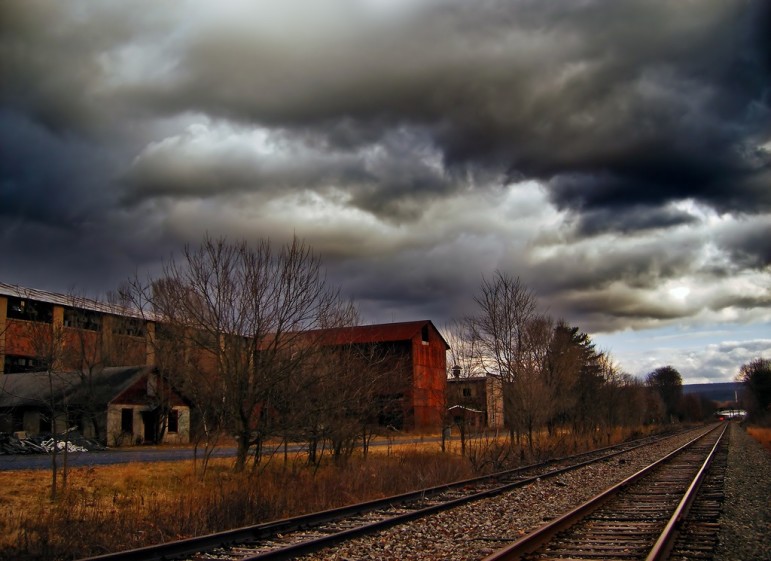
November 12, 2015; NextCity
NextCity’s story on affordability in Pennsylvania has two great takeaways: Rent burden is not just a big metro problem, and affordable housing can be a bipartisan issue even in a polarized political environment. In “Pennsylvania Metros Where Renters Struggle the Most to Pay the Landlord,” author Marilee Mondon tells how the State General Assembly, dominated by Republicans, enacted an expansion of the State’s Housing Trust Fund. According to the Housing Alliance of Pennsylvania, the Pennsylvania Housing Affordability and Rehabilitation Enhancement Act (PHARE) “will expand the Housing Trust Fund’s revenue and reach to all 67 counties with revenue drawn from future growth in the existing Realty Transfer Tax, redirecting it back into the residential real estate market. Until now PHARE was funded by a portion of Marcellus Shale drilling impact fees and was limited to use by the 37 Pennsylvania counties that host drilling wells.
That this plan was supported by Democratic Governor Tom Wolf and the Republican-controlled General Assembly in the midst of a five-month standoff over the state budget is truly amazing and speaks to the urgency of rental housing affordability problem that has now reached into Pennsylvania’s smaller metro areas.
When most readers think of Pennsylvania, they think of Philadelphia and Pittsburgh, but Ms. Mondon Includes a chart of smaller metropolitan areas where renters are struggling to pay rents in excess of 30 percent of household income. Places like East Stroudsburg, Allentown-Bethlehem-Easton, and Erie are right up there with the larger cities when it comes to rent burden. WFMZ in Eastern Pennsylvania and western New Jersey asks:
Are local rentals out of reach? The average Pennsylvania worker can’t afford decent housing, and New Jersey residents aren’t faring much better, according to a new study. Multifamily apartment units are 11 percent higher than last year and 20 percent higher than 2007, all while wages have stagnated, according to the Federal Reserve Index.
Rent escalation seems to be pervasive in smaller cities, according to a report on CNBC, even if large coastal metropolitan areas are more frequently featured in news stories:
Big cities have always seen the highest rents. Big demand and limited supply see to that. Now smaller cities are falling in line, seeing rents rise faster than those in even some of the hottest markets. The reason is rising demand. As employment improves, new households are finally being formed again, and they are all renter households. The home ownership rate is still falling.
Sign up for our free newsletters
Subscribe to NPQ's newsletters to have our top stories delivered directly to your inbox.
By signing up, you agree to our privacy policy and terms of use, and to receive messages from NPQ and our partners.
Affordable housing advocates see increasing production of affordable rental units as a way to rebalance the supply-demand equation.
A key to the legislative victory (242-1) seems to have been a broad consensus that housing is a “job creator” as well as a social benefit. Ms. Mondon quotes Housing Alliance of Pennsylvania’s Liz Hersh, saying, “We call upon our leaders at the federal level to display the kind of bipartisanship we saw in Pennsylvania to protect vital programs such as the HOME Investment Partnerships Programs and the National Housing Trust Fund.”
The politics are even more interesting because a key element of the current budget standoff is the governor’s plan to raise the tax on fracking. It seems that Republican legislators are less squeamish about extension of the current fracking tax to benefit all Pennsylvanians. Contrast this stance to Ohio, where Governor Kasich has proposed a modest severance tax that would be used to reduce the income tax burden of all Ohioans. Kasich may be half right in his approach. The Pennsylvania lesson may be to use the proceeds of a frack tax for a public purpose (as opposed to a personal benefit) and then generalize that purpose to the entire state.
Still it’s not all good news for renters. This past weekend, the governor prepared renters for a compromise that will raise the state sales tax:
A proposed 21 percent increase in Pennsylvania’s sales tax, part of a plan to end a nearly five-month-old state government budget stalemate, would fall more heavily on people who don’t own a home, Gov. Tom Wolf said on Friday. The first-term Democratic governor suggested that the sales tax proposal was the result of concessions he had to make to Republicans who control the Legislature, saying that the budget deal is a “half a loaf.”
Then, early this week, Governor Wolf proclaimed that the budget agreement was in “deep peril” because, he said, Republican leaders in the General Assembly did not have the votes to pass the proposed sales tax increase. Heading into Thanksgiving, the Pennsylvania budget impasse continues, despite the bipartisan support for expanding affordable rental housing.—Spencer Wells
Update: Cynthia Witman Daley, policy director of the Housing Alliance of PA, wrote to NPQ to say, “Act 58 does not touch the Marcellus Shale impact fee money that goes into PHARE. It is an impact fee and so it goes to impacted counties. That money remains and is dedicated to the counties with shale wells. Act 58 creates a second source of revenue for PHARE, a portion of future growth in revenue from the existing Realty Transfer Tax (RTT). The RTT money will be available statewide.”











